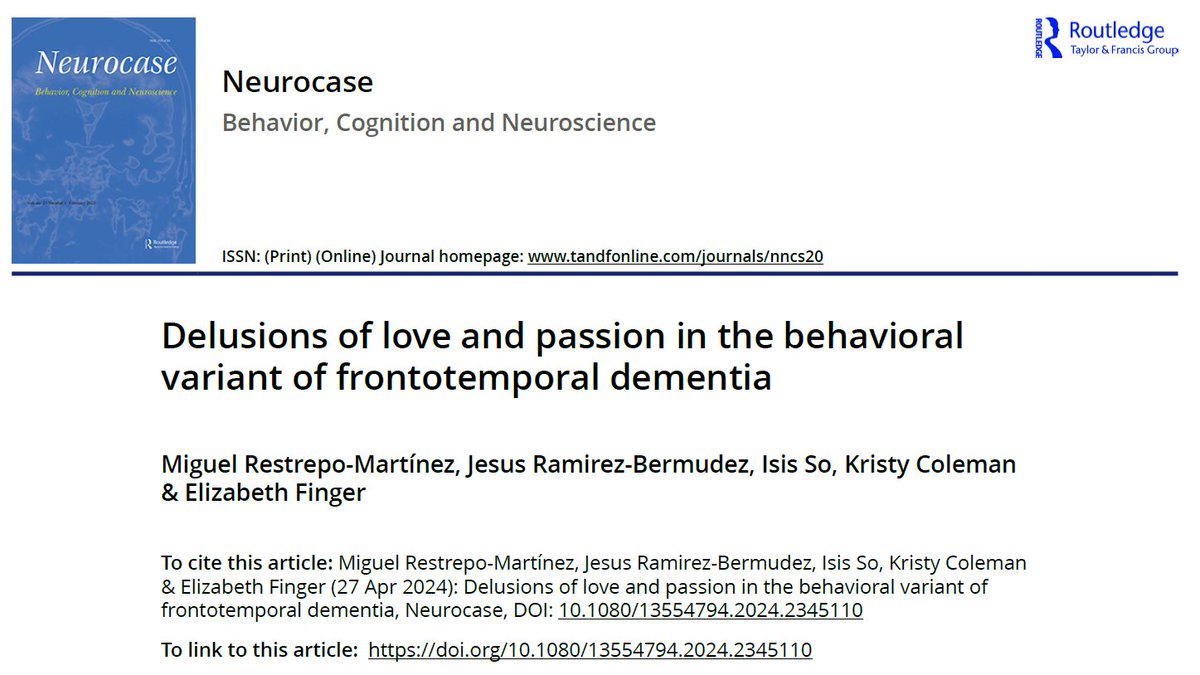
MD PhD ⚬ Clinical Narratives & Scientific Research ⚬ Neuropsychiatry ⚬ National Institute of Neurology and Neurosurgery / SNI2 ⚬ English & Spanish Tweets
How to get URL link on X (Twitter) App




 Estoy lejos de ser un conocedor en la materia. Como otros lectores curiosos, leí en las últimas décadas los libros de Lyotard, Jameson, Rorty, Bauman, Lipovetsky, Vattimo, Habermas, acerca del posmodernismo en las artes y el pensamiento, y acerca de la "condición posmoderna"
Estoy lejos de ser un conocedor en la materia. Como otros lectores curiosos, leí en las últimas décadas los libros de Lyotard, Jameson, Rorty, Bauman, Lipovetsky, Vattimo, Habermas, acerca del posmodernismo en las artes y el pensamiento, y acerca de la "condición posmoderna" 

 2
2

https://twitter.com/EpistInnocence/status/1816367787738124296
 2/10 Fagerberg & Garson start with an example of the Capgras delusion: Riad thinks that her wife has been replaced by a "perfect impostor". Two features need to be explained: 1) the misidentification problem (Riad cannot identify his wife), & 2) the reduplication problem (Riad
2/10 Fagerberg & Garson start with an example of the Capgras delusion: Riad thinks that her wife has been replaced by a "perfect impostor". Two features need to be explained: 1) the misidentification problem (Riad cannot identify his wife), & 2) the reduplication problem (Riad

 2/4
2/4
 2/7
2/7
 2/4
2/4
https://twitter.com/JRBneuropsiq/status/17639593706798043582/8
https://twitter.com/tolchinsky/status/17421699181397240642/7 ...integrity
https://twitter.com/JRBneuropsiq/status/17322000024772281972/5 ...Throughout the process, clinicians should consider the importance of a) Syndromal, b) Topographic, & c) Etiological levels of diagnostic reasoning
https://twitter.com/ISEPPDirector/status/17113845700194062252/7 Epilepsy is always a neurological disease, but many patients with this condition unfortunately develop mental health problems such as psychosis. In this case, the neurological & the psychiatric are not synonyms, but they are not mutually exclusive, in fact, they're related

